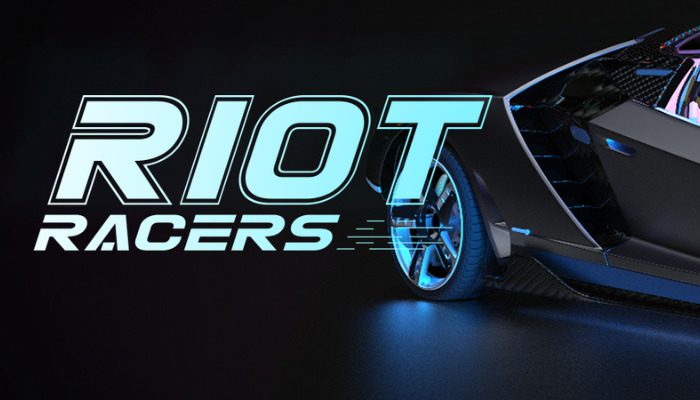In this TechBullion interview with Premium Carrots VP of Data Science at Riot Racers, we will get more insights into the play-to-earn car racing game where players own parts of the game.
Gaming is one of our most celebrated industries that involves nearly 40% of the world’s population. Where does the emergence of blockchain-powered gaming fit into this picture? What factors, do you think, make blockchain gaming more appealing to gamers?
The global gaming industry is the epitome of success. There’s no debate. But when you think of it, the industry is far from perfect. For decades now, gamers have suffered from the centralized nature of games. They don’t have any proper way of monetizing their gameplay directly. Blockchain-powered gaming, on the other hand, provides a viable solution to both these problems.
The decentralized nature of blockchain gaming gives gamers the power to own and control the future course of the games they love most. They can customize games to their liking, preserve their progress on the blockchain, and even use resources from one game in another. For the monetization part, blockchain gaming introduces the play-to-earn model powered by cryptocurrencies and NFTs. Gamers can now earn direct monetary rewards just by playing the game.
This model rewards the gamer’s efforts and is the most appealing factor for blockchain gaming.
That’s interesting! NFTs have rapidly made their way into the blockchain gaming realm. What unique opportunities do they bring to the table?
NFTs add a whole new dimension to gaming. They create the scope for a full-fledged virtual economy and allow gamers to own parts of their favorite games. Everything from land, cars, weapons, avatars, skins, and experiences within the gaming universe can be tokenized as NFTs, turning them into rare, tradable assets. This makes them valuable within the virtual economy.
For instance, a super rare weapon that you’ve won in a battle can be sold or even rented on NFT marketplaces to other gamers. This creates another potential income source for gamers.
When in-game assets are tokenized as NFTs some can even be used across different gaming universes, without the fear of losing your valuable assets.
Blockchain technology and its transformative potential are pretty well known. But, issues of scalability and network congestion are still very prevalent. Do you think blockchain networks today are prepared to cater to billions of gamers worldwide?
This is a great point and something that needs to be discussed. The general lack of scalability and slow network speeds have crippled many innovative games launched on blockchain networks. Even games as simple as CryptoKitties have suffered this fate. And if we are going to create fully immersive, high-speed games on the blockchain, some of the underlying technology has to step up. Thankfully though, the industry’s collective efforts have resulted in better and more scalable blockchain networks.
Polygon, for instance, is now the preferred blockchain network for gaming projects because of its high scalability. Solana is another great example of a chain with huge potential. Apart from this, the industry has also been experimenting with application-specific blockchain networks where every game has a blockchain of its own.
Now, can you tell us a bit about Riot Racers, and its unique gaming experience?
Sure! Riot Racers is a play-to-earn car racing game powered by blockchain technology. The gameplay is filled with beautiful graphics, fun and friendly user interfaces, and even requires a little strategy for success. Importantly our platform is beginner-friendly so that even amateur gamers can claim their fair share of the rewards. Gamers must have a car and a driver that they can purchase as NFTs or rent for free from our internal marketplace. Then the user can enter races for free with guaranteed payouts or enter pay to play races with larger prize pools. Payouts are standard throughout all races with the gamer who finishes first getting 50% of the pool, while the second and third place finishers get 30% and 20% respectively. This is just one way for gamers to earn from the game.
The other ways are to rent out your owned assets, spawn existing assets to create new ones, or own a part of the game itself. Users can own gas stations, mechanic shops, race tracks, and even billboard lands within the gaming universe and earn $RIOT tokens in return.
Sounds intriguing! Where do you see the blockchain-gaming industry in the next few years? Do you think it will be an integral part of the global gaming space?
In short, absolutely! I am quite excited about the future of decentralized gaming on the blockchain and I believe it will play a significant role globally. It’s a win-win situation when you can have out-of-this-world gaming experiences while earning “real” money for your efforts. Most gamers would jump at the chance. As a result, the blockchain gaming space is preparing for a surge in players, and in the not-too-distant future, blockchain gaming may become synonymous with gaming itself.
Lastly, do you have any advice for investors, developers, or gamers eyeing this space?
With the rapid growth of blockchain gaming, I believe decentralized play-to-earn titles will be at the forefront of the global gaming market in the future. So, nowadays investors have a great potential to profit from the expansion of these early-stage projects. Investing in the appropriate blockchain-gaming ventures will undoubtedly help investors claim a sizable slice of the profit pie in the coming years. Not financial advice of course!



































